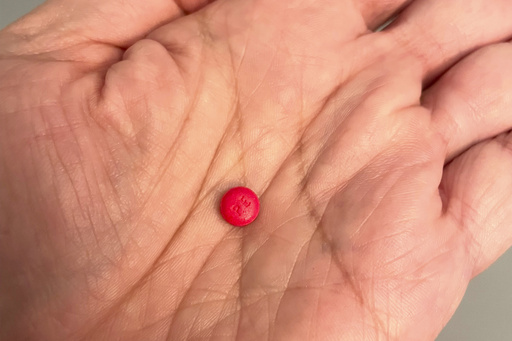
WASHINGTON — Changes are on the horizon for the cold and cough section at your local pharmacy, as U.S. authorities aim to eliminate a leading decongestant from numerous over-the-counter products. This decision follows findings that the ingredient, phenylephrine, is ineffective in alleviating nasal congestion.
Phenylephrine has been a common component in well-known medications like Sudafed and Dayquil. However, its effectiveness has been under scrutiny for years. Recently, the Food and Drug Administration (FDA) proposed discontinuing its use in pill and liquid forms, initiating a process that may compel manufacturers to either remove or reformulate their products.
This development is hailed by skeptical researchers, including those from the University of Florida, who urged the FDA to reassess the drug’s efficacy in 2007 and 2015. As a result, consumers may have to consider alternatives for relief, potentially turning to an older decongestant that was pulled behind the pharmacy counter almost two decades ago.
Healthcare professionals believe that Americans will ultimately benefit from the discontinuation of phenylephrine, which is frequently paired with other medications targeting cold, flu, fever, and allergy symptoms. “When people go into a pharmacy and are confronted with thousands of products, they often choose one that is ineffective,” explained Dr. Brian Schroer from the Cleveland Clinic. “Removing this option will streamline their choices, allowing them to select more effective treatments.”
The FDA’s action comes after a unanimous vote by federal advisors who assessed that oral phenylephrine does not alleviate congestion. An extensive review of several recent studies showed it was no more effective than a placebo at relieving nasal blockages. Older studies from the 1960s and 1970s that initially supported phenylephrine’s use were also found to contain significant flaws and questionable data.
Currently, oral forms of phenylephrine generate about $1.8 billion in annual sales in the U.S., though it remains effective in nasal spray formulations, which are less frequently used. Historically, pseudoephedrine was the preferred ingredient in cold and allergy medicines. However, legislation enacted in 2006 required that pseudoephedrine products be moved behind the counter due to their potential for misuse in methamphetamine production. In response, companies like Johnson & Johnson and Bayer reformulated their products, branding them as “PE” versions to maintain shelf availability.
For those seeking alternative methods for nasal congestion relief, consumers can find pseudoephedrine products—such as Sudafed and Claritin D—behind pharmacy counters, accessible without a prescription but requiring a photo ID from purchasers. Other over-the-counter options include nasal sprays or saline solutions, which can effectively clear mucus. For persistent symptoms, nasal steroids like Flonase, Nasacort, and Rhinocort are highly regarded by doctors, as they provide effective long-term relief.
“Daily use of these medications is crucial for optimal results in treating nasal congestion,” Dr. Schroer added. For immediate relief, patients might consider antihistamine sprays like Astepro, known for their quick action.
Despite the forthcoming changes, phenylephrine-based nasal sprays will remain on shelves. Experts questioning the drug’s efficacy argue that when ingested, phenylephrine is rapidly broken down and rendered ineffective in the stomach. “It’s an effective medication, but not when it’s ingested,” commented Leslie Hendeles, a professor emeritus at the University of Florida. “It gets inactivated in the gut and fails to enter the bloodstream, preventing it from reaching the nasal passages.”
Initially, Hendeles and his team had proposed that higher doses of phenylephrine might yield better results, but further studies indicated that even doses quadruple the current recommendation do not alleviate congestion. Increasing the dosage could pose potential safety threats, such as significantly elevated blood pressure.
As the FDA begins this transition, oral phenylephrine products will still be available for a time. The agency must undergo a public consultation process lasting six months to collect feedback from consumers and companies. After reviewing responses, the FDA will issue a final decision, and companies will likely have an additional year or more to withdraw or reformulate their products accordingly.
The Consumer Healthcare Products Association, representing drug manufacturers, is advocating for continued availability of these products, emphasizing the importance of self-care options for consumers. In contrast, Hatton and his colleagues argue that having access to ineffective options does not constitute a true choice.

